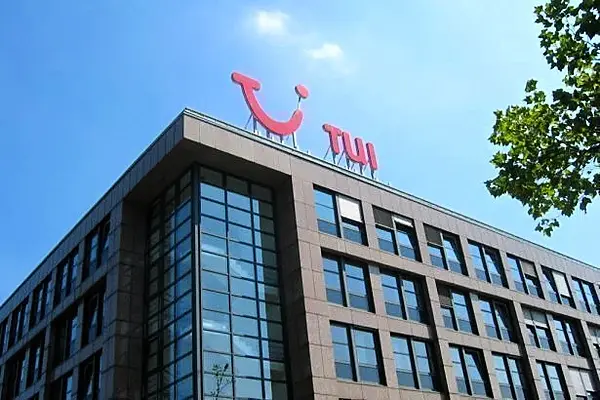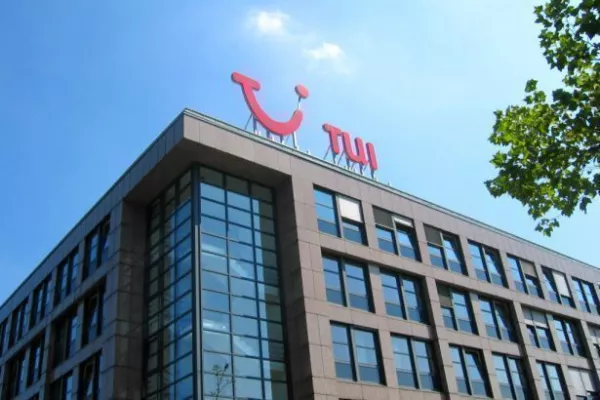Holiday group TUI TUIGn.DE expects to become profitable again in 2022 as countries lift COVID-19 restrictions and people book package tours, eager to pay more for higher hotel grades or extra services on their long-awaited vacations.
The group's announcement chimes in with other recent positive updates from the travel sector including stronger-than-expected sales at German flag carrier Lufthansa LHAG.DE and airport operator Fraport FRAG.DE.
TUI expects the recovery to be lasting as people are valuing experiences more highly than goods, and as oil and gas prices should eventually normalize, CEO Fritz Joussen said after TUI's second-quarter results on Wednesday.
Commenting on oil price levels of $105-110 per barrel, Joussen said, "historically, I have not seen such pricing levels last very long."
Asked if consumer worries about rising living costs might curb soaring demand, he said, "I think there might even be upside potential if oil and gas prices normalize because they are the driver of inflation today."
Many analysts say the effects of inflation are the main risk to the travel industry's 2022 earnings. Joussen said he agreed that rising consumer prices might affect TUI if they remain too high for too long.
He also said rising average travel prices - thanks to more guests treating themselves with higher hotel categories, and people booking longer holidays making rooms more scarce - were covering higher fuel costs.
"There will be practically no last minute offers at low prices this summer," Joussen said.
He added he expects TUI's capacity to almost reach the pre-crisis level of 2019 this year, and the company does not need taxpayers' money, just a little from the banks at the moment.
Germany had given TUI aid of €4.3 billion as COVID-19 hit the travel industry in 2020-2021 but second-quarter bookings helped the group further cut debt and it plans to repay all state aid soon.
In the second quarter, TUI's underlying loss before interest and taxes (EBIT) narrowed to €330 million, almost halving the loss of €633 million that it reported for the same period last year.
TUI also said that it generated sales of €2.13 billion in the second quarter of its 2022 financial year starting in October - nine times as much as in the second quarter of 2021.
It last posted a profit in 2019.
TUI Announces Share Sale To Pay Back German State Bailout
The above news was followed by news that holiday group TUI TUIGn.DE, TUIT.L on Tuesday 17 May unveiled a capital increase to pay back elements of a German state bailout that it had received during the peak of the COVID-19 pandemic.
The company will issue up to 162,291,441 new shares, which, based on Tuesday 17 May's closing price of €2.89 apiece, would result in proceeds of up to €469 million.
TUI said that it planned to use the proceeds as well as existing cash resources to fully repay the second installment of a so-called silent participation of the German government in the order of €671 million.
TUI also said that it would reduce outstanding credit lines by state lender KfW KFW.UL by €336 million to 2.1 billion.
"As a result, in addition to the KfW credit line, the remaining government financing...for TUI will be the approximately 59 million euro bonds with warrants convertible into shares and the Silent Participation I, also convertible into shares, of 420 million euros," TUI said.
Germany-based TUI has taken on loans of over €4 billion and been bailed out multiple times by the German government after COVID-19 stopped holidays for much of 2020 and the beginning of 2021.
TUI Raises Approximately €425m In Capital Increase To Further Repay Debt
All of the above news was followed by news that holiday group TUI TUIGn.DE said on Wednesday 18 May that it raised approximately €425 million in its capital increase to pay back parts of a German state bailout it had received during the pandemic.
TUI had taken on loans of €4.3 billion and been bailed out multiple times by the German government as COVID stopped holidays, but it aims to make a profit again in 2022 as people jumped to book long-awaited tours amid lifted restrictions.
The company said that it placed the 162,291,441 new shares with institutional investors at 2.62 per share, 10% below Tuesday 17 May's closing price, in its third capital increase since January 2021.
TUI's Germany-listed stock was down 11.2% by 0845 GMT on Wednesday 18 May.
TUI had said that it would use the proceeds and existing cash resources to fully repay the second instalment of a so-called silent participation of the German government and reduce outstanding credit lines by state lender KfW KFW.UL.
"The timing seems sensible, ahead of what should be a strong summer season, and before what could prove to be a more challenging winter," the Stifel brokerage said.
News by Reuters, edited by Hospitality Ireland. Click subscribe to sign up for the Hospitality Ireland print edition.









